Richard Goodman's Blog, page 20
April 17, 2022
Easter, 1953
It was a small church in the country, about five miles from where we lived in Virginia Beach, Virginia. This is where my mother took us every Sunday—my brother, sister and me. It was an Episcopal church built with brick and wood like so many buildings in that part of southeastern Virginia, marked and influenced by the colonial past. We went reluctantly, my brother and I, especially in the summer, when baseball and barefooted freedom called to us. But there was no question of not going.
I knew some of the people who came and some my mother knew and some we only knew from those Sundays in church. I might have whined about going, but there were moments when I sat there where the words and stories from the Bible entered me and became fixed and I think determined, at least somewhat, the course of my life as a writer.
In this little Virginia church there were two days that were the mightiest, the most significant. They were Good Friday and Easter Sunday. Though they were two days apart, the two days could not have been more different.
We usually went to church on Good Friday. This was the day Jesus was crucified. We had been taught the story in Sunday school, and the minister had led us up to this day each Sunday. We knew what was going to happen. We knew that Jesus was going to be crucified. But part of me didn’t want to believe that. Part of me didn’t want to believe that his father—that God—was going let his son die. It couldn’t be! As the time went by in the church, and the sad words from the Bible were read by the minister, I kept hoping that God would save his son from dying. Maybe this time it would be different.
But they did nail him to the cross. And he did die.
And when the minister read those lines that Jesus said as he died, “It is finished,” a great sadness came over me, and I felt a great sadness sweep through the church, as dark as the clouds that the Bible says covered the sky the afternoon Jesus was crucified. I went home with my mother sad and gloomy. It was a dark day in every way. Saturday was as well.
Then, at last, Easter Sunday. We dressed in our finest. My mother wore a wide-brimmed hat, a lovely dress, and white gloves that inched up her forearms.
When we walked into the church, it was festooned with flowers everywhere. Sprawling, exorbitant arrangements by the altar, and along the sides of the church. Easter came at the same time as our Virginia spring, so the windows of the church we thrown open and the smells from the flowers from outdoors entered and flowed about. Everything was saying rebirth. The women and girls were dressed in beautiful bright colors, yellows I remember, chiefly. All the women wore Easter hats. They looked like queens. Joy filled the room. Jesus had risen from the dead! He was not dead. He had come back from the dead and walked the earth and then ascended into heaven to be with his father.
Everyone was smiling.
After the service we shook each other’s hand and wished each other a Happy Easter. The Lord Had Risen! Praise the Lord! Everyone was happy—joyous. Yes, joyous. From great despair to great joy in one weekend.
We rode back home in my mother’s car. If the day was warm, and it often was, the windows we would be down and the sweet breeze came into the car.
In a few years I would stop feeling these things as if they actually happened to a man who walked the earth. I would still go to church on Easter, still love the words and the music and the flowers and love seeing the women in their finest. But I would never again feel as I did as a boy in 1953 that everything was wrong with the world and then, just a few days later, suddenly, in a burst of communal joy, everything was right with the world.
April 11, 2022
Remember
Recently, a friend died. He was only 63. He was a great guy, a decent, kind, capable man. I wrote something about him and published it here. It made me think of an entire life, of his too-short life. And the finality of that moment when he was no longer here. The profundity of it, the inevitability of it. How can you not think of your own mortality when that happens?
I was thinking about the elegy, the obituary, the remembrance, whatever you want to call it. And the simple act of talking about someone after they’ve gone. A lot of people I know don’t do that. My family, for one. Makes them sad. But I think it keeps the dearly departed alive when you talk about them. We’re here for a brief time, and the we’re gone. And maybe, too soon, forgotten.
Will anyone know I was here? Do you think about that? Worry?
I worry that I will vanish, like vapor rising out of a tea kettle. How long does it take to be forgotten? How long before they don’t recall my birthday, the way I walked, my face, my voice? How long before my name is brought up once a week, once a month, once a year, then never?
I would like to imagine that after I’m dead and gone, my partner, my sister or my brother, or a friend will be sitting in a café in New York City, and, apropos of nothing, just because the thought hit them, perhaps with a touch of wistfulness and small delight, say, “Nobody loved New York more than Rich. He would be so happy to be here now, watching the people go by.”

There would be a small pause. The thought would linger very briefly, and then it would be gone. The day would continue, living lives would go on. But for a small spotlight of time, I would be there, not exactly alive, but in some real way I would be with those who are.
April 2, 2022
Kevin Lippert
I was very sad to learn that Kevin Lippert died Match 29, after a long and brave struggle with cancer. I knew he was ill. I knew in recent months he was fighting mightily against an ever-encroaching brain cancer. I knew it wasn’t looking good. It was still a shock to hear the news. It still struck home. He was a wonderful man, a generous man, a rare man.
I met him fifteen years ago at a parent-teacher conference at the New York high school both his son and my daughter attended. I liked him instantly. He had the most striking combination of a piercing intellect and a genuine sweetness. I learned that he was the founder and publisher of Princeton Architectural Press, a small, highly-regarded house that published books on architecture, design, and, in general, the creative spirit. The Press’s offices were on East 7th Street in New York City, in my old neighborhood in the East Village. Kevin and I got to know one another, and I would visit him in the Press’s small, jammed brownstone offices on East 7th Street. He always took me to lunch, and he always picked up the check. He was a friend to writers, and he was well aware they had little money, and were often hungry.
I admired him greatly. He had made a success of Princeton Architectural Press (until it was coldly wrested from him), and that is not a small thing. He did it with the books he loved and esteemed.
I can’t begin to tell you how much he helped me through the years. Every chance he could, he would boost my writing. He attended my readings, he linked me to people in the publishing world he knew, he even somehow found a way to give me a gig with his press, despite my having no sound knowledge of architecture. I wrote the introduction to one of his books. (The book was about an outsider artist, and so my not having a background in architecture didn’t harm the house’s reputation.) And, guess what, that introduction eventually landed me on NPR. Kevin always had some help for me up his sleeve. He never asked for anything in return, never even hinted at that. I will always be grateful.
In many ways, he taught me how to live. How to be a good person in this world. I try to follow his example.
I would see him in Maine from time to time. I taught there in the summer. He vacationed there. The last time I saw him, in fact, was in Maine, in Rockport, when he was on his way home. The cancer he had routed years earlier had returned. He was a bit unsteady, and that was alarming. Still, it was lovely to see him. He hadn’t lost his wry humor.
Someone once asked Alfred Hitchcock why he so liked working with Thornton Wilder, the playwright, on one of his movies. Hitchcock said, “I was touched by his qualities.”
I was touched by Kevin’s qualities. I always will be.

P.S., The New York Times published a terrific obituary about Kevin April 17.
May 8, 2021
Wish you were here
"Mothers are all slightly insane," Holden Caulfield says at one point in The Catcher in the Rye. I always knew what he meant. It was never a quote that I puzzled over. In five words, he nailed it.
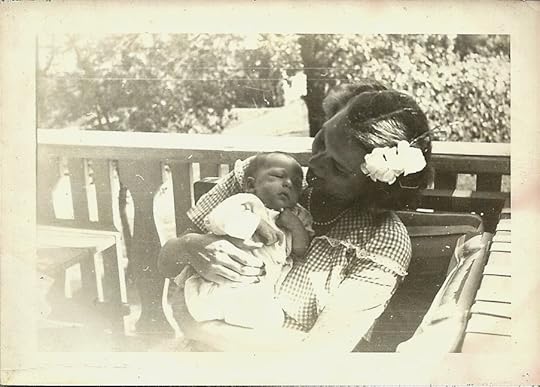 My mother holding me, age 7 weeks
My mother holding me, age 7 weeksYes, mothers are all slightly insane, some more slightly than others. They're insane because they can never be certain, ever, that their child(ren) is(are) completely without harm. They are on some kind of alert twenty-four hours a day, 365 days a year. Some part of them never sleeps. You can't be that attentive and worried for that long and not be slightly crazy. Combine this worry with powerlessness—as soon as the boy or girl steps out of the house (out of the room, actually), they can't do a thing to protect them.
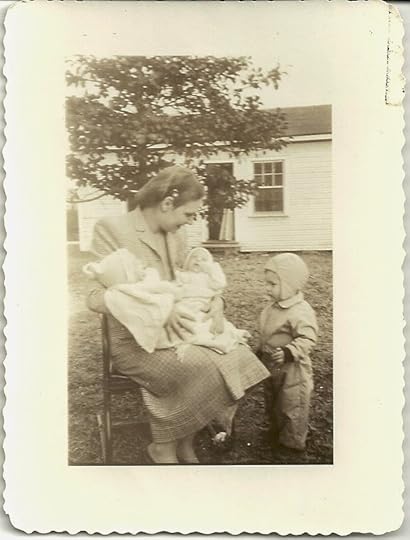 Holding her twins with me pondering. She had three children within eleven months
Holding her twins with me pondering. She had three children within eleven monthsI think of my own mother, of her difficult life, and of her living alone after her divorce. For years. I think of all that she tried to do with that ache and pull toward her children. I think of her carrying that ache of loving me and that love unrequited, and how can you stand that day after day year after year? She used to say to me, "I get lonely for you, Richie." I think of her probably feeling she hadn't been a good mother, and how that must have devastated her after worrying about us so deeply and so continuously. I think of her bright, sharp mind, love of writing and reading and of her unblemished soul.
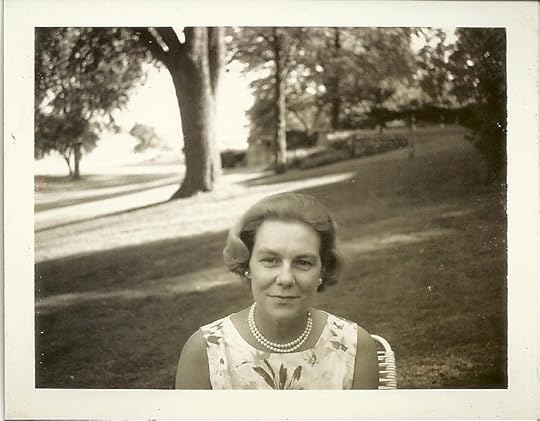 In Old Greenwich, CT, sometime in the 1970s
In Old Greenwich, CT, sometime in the 1970sIt's too late to tell her that I love her. I tied to do justice to her memory in a piece called "The Wheaton Girl". She went to Wheaton College. "The happiest days of my life," she told me. I doubt she'd like it. She didn't want her weaknesses exposed, and who would? I wrote another about watching her hang out the wash when I was a kid. Still not right. I'm not here to say anything silly like, tell your mom you love her before it's too late. (Or maybe I am.) I'm just here to say to you, Mom, that you deserved better. But I can't. Because you're dead. I think about you every day. I hope you've found peace.
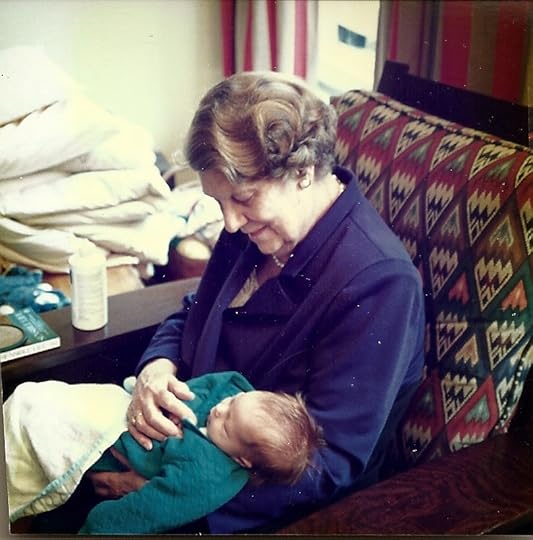 The only time my mother saw my daughter, Becky
The only time my mother saw my daughter, BeckyMarch 13, 2021
In the long run
I was riding my bicycle one afternoon in New Orleans where I live. Peddling down a street, I looked to my left, and I saw a young woman pushing a baby stroller. She had that determined look about her I had seen on so many mothers’ faces all my life. It was clear she had things to do. I could see her mind working as she pushed her baby forward with a strong stride. I slowed down, so that for a moment or two, I was traveling at the same speed as she. I saw her take her phone from a bag attached to the back of the stroller. She punched in a number, began talking, and continued pushing the stroller along. Has there ever been a more capable multi-tasker in this world than a mother? I’d seen this sight thousands of times, but this morning it gave me great solace and hope. This mother was doing what mothers have been doing, in one form or another, forever. This hasn’t changed. Mothers are pushing strollers everywhere. And they always will.

January 26, 2021
The Owl & Turtle
I see that Owl & Turtle, a small, superb bookstore in Camden, Maine, is up for sale. The news saddened me. I imagine it saddened many others as well. I hope a buyer is found. How difficult to maintain a bookstore in these assaultive times, I can hardly imagine. But perhaps there is an affluent book lover, or a daring one, or both, who would be willing to come to the rescue. I hope so.
The Owl & Turtle has been serving Camden for fifty years. I knew it through its most recent owners, Craig and Maggie White. It was Maggie who I talked to when I went to The Owl & Turtle. Craig was usually working the café to one side of the store. I spent the last four summers in the Camden area, and I went to The Owl &Turtle as often as I could. I loved going there.
After you have experienced many bookstores in your life, you come to know, after a few minutes, when you explore a new one, if it’s the real thing. If you have struck literary gold. By that I mean that the books you see were chosen with learning and love. That’s what I experienced after my first visit to the bookstore. What book did I see in my initial walkabout in The Owl & Turtle that assured me I was dealing with the real thing? It was A Fan’s Notes by Frederick Exley. Now, here’s someone who knows their books, I thought. Published in 1968, the book was taken by many to be one of the first American memoirs. It couldn’t have been a best seller at that point, because it had been all but forgotten. Yet, there it was. Because the owners felt it should be there.
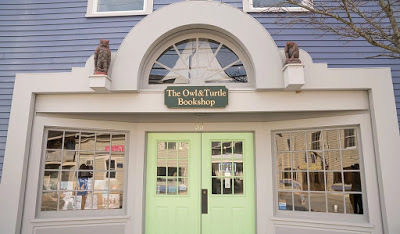
Spending time is a fine bookstore is like strolling through a city you love. You walk down aisles, pause and gaze, a bibliophilic tourist, encountering new titles by names you may or may not know. It’s exciting. I never emerged from The Owl & Turtle without having learned something, So, I go to a bookstore to be surprised and delighted. I also go to a good bookstore to be advised. And that is what Maggie did on more than one occasion. I asked her to recommend a book. Now, the simple fact is that too many book recommendations fall flat for me. I sometimes want to question my friendship after reading a book a friend recommended to me. Looking about at that books that line the shelves of The Owl & Turtle, I immediately trusted Maggie’s judgment. A good bookseller is a sommelier for your mind. She recommended Notes on a Silencingby Lacy Crawford. I read it. I loved it. Trust, confirmed.
Now, her counsel will not be there when I come to Camden. Nor will it be for those who live there and who visit. I was thinking of how wonderful that bookstore that must have been in the winter months when its gets dark so early in Maine and when it’s cold and when a trip to The Owl & Turtle must have been so restorative. I’m sure it was a refuge for many who live in or near Camden as they slogged through those winter days. And what a way to introduce children to the mystical world of books and reading it must have been. I’m sure there are many children who grew up there, literarily speaking.
It’s probably too late to implore Maggie and Craig not to sell The Owl & Turtle. It probably came to that a while back now. I can’t imagine how difficult it was to make that decision. But it’s not too late to thank them for all that they gave anyone who stepped foot into their lovely bookstore.
December 5, 2020
To those who don't lie
From time to time, I meet someone who says, "I never lie."
I don't believe them. Tempted to call them liars. I believe that, but too cute a reply.I lie. I lie in order not to hurt someone. Of course, the truth isn't necessarily called for when not asked for. But sometimes you're asked for it, and sometimes it's better not to provide it. If she asks you, are you going to tell the woman whose food you were served at her home that it wasn't very good? And if you do tell them it was, in fact, not good at all—which is the truth, mind you—well, go live with the look on her face.
But, hey, you can say you never lie. Good for you.
Someone asked playwright Tracy Letts what he says when he sees a play written by a friend that he thinks is awful and the friend asks him his opinion.
"I lie!" Letts said. "I lie magnificently!"
I agree with what one of Graham Greene's characters has to say about this: "The truth, he thought, has never been of any real value to any human being—it is a symbol for mathematicians to pursue. In human relations kindness and lies are worth a thousand truths."
Of course, sometimes lying is despicable. If the intent is to deceive, to cause harm, simply to gain an advantage, well, it's ugly. Sometimes you have to tell the truth. You're a coward if you don't. I often fail here. I lie when I shouldn't. Not proud of that.
I side with Tennessee Williams. I trust his sense of morality. In A Streetcar Named Desire, Mitch confronts Blanche with some unsavory details about her past:
Mitch: You lied to me, Blanche.
Blanche: Don't say I lied to you.Mitch: Lies, lies, inside and out, all lies.Blanche: Never inside, I didn't lie in my heart...
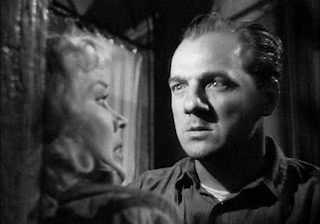
TW was the same guy who said the worst sin is deliberate cruelty. And a lot of times a well-fabricated lie prevents me from being deliberately cruel. In those moments, I'm content to be a liar.
A great friend of mine, who tells the truth faithfully more than anyone I've ever known, said to me recently, "I've made a vow not to lie to myself anymore."
Now that is a different story.
September 8, 2020
Like Spoons in a Drawer
She had the best laugh of any woman I’ve ever known. It was an explosive thing, half giggle, half guffaw, and she let it rip, no holding back. It went right from her belly out into the world in short, ecstatic peels. I made her laugh, and she made me laugh, too. Carol Stimpson from Seattle, Washington. We were together when we were young and new to New York, and I was lucky to have found her. She made my life rich and bright. We fell in love with each other, and then with New York City. That’s something you never forget. It’s something you always have, the light of the love for that city together.....
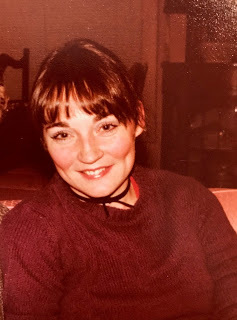
[To read the rest of this memory of young love, please go to:
https://medium.com/@richgood711/like-...]
September 3, 2020
Tom Petty and a life
I finished watching Runnin' Down a Dream, the panoramic 4 hour 19 minute documentary about Tom Petty and the Heartbreakers, last night.
Not all in one sitting.
The 2007 film was directed by Peter Bogdanovich. You know, The Last Picture Show guy.
I knew virtually nothing about Petty and his Heartbreakers before this. His music was not a part of my life.
The film is thorough, if anything. It mainly consists if concert footage and interviews with Petty, his band members, and various well-known musical figures. It's not a great film, in my view. And fours hours is a long time if you're not a rabid Petty fan.
But the film is curiously addicting. Because of its length, you are able to really get to know Tom Petty. And his career, which began in the mid-1970s, and continued until his death at 66 in 2017.

What I gathered after imbibing this much celluloid is that Tom Petty was one interesting, admirable guy. Brave and a man of great integrity,
Thinking about it this morning. Two things. First, the influence of seeing the full sweep of a life. Or a musical life, because there is almost nothing of Petty's private life in the film. One can assume this was deliberate on Petty's part. The most affecting glimpse is the material about his mother and his cruel father.
You see a life unfold, decision by decision, resolution by resolution. Petty twice fought the music industry in David vs. Goliath encounters, and twice he prevailed. These were nasty and prolonged fights, not mere skirmishes.
This nearly day-by-day accounting is sobering. A life is an accumulation, and today is part of that accounting. A life is all those todays.
What does my accumulation look like?
I don't like a lot of what I see.
Second thing. Suddenly, Tom Petty is dead at 66. Did he have regrets? I have no idea. But if the film is any indication, I would say: not many.
I'm 75.
How much accumulating do I have left? Will it make a difference?
August 28, 2020
A walk in Charleston
I arrived in Charleston, SC—or nearby—Monday. On my way back to New Orleans.
Went into the city proper yesterday. I'd been on previous trips but wanted to see how it looked with this shitstorm we're facing.
Pretty place, early-19th-century century houses. Enjoyable to walk, normally. Scene of a monstrous church slaying in 2015. Civil War started in the harbor. I'm sure you know this.
The place was practically deserted. Masks required, but half the few people I saw, wearing none. Zero police presence, either on foot or in auto, to enforce.
The last time I walked here I had a companion, a woman I'd been with for three years. My leaving her ached within me. No place is the same if it can't be shared. She liked Charleston.
She walked with me in my mind. I pointed out things to her. "Remember this house?" Or, "I bought you a hat here. You liked it so much." We went to the harbor, watched the birds.
As Dylan says: I threw it all away.
Even without her, it was sad walking the streets. The life is squeezed out of the town. Even towns can lose weight, become thinner, look wan.
I wanted to see one building, though, before I turned around.
The Old Slave Mart. I'd been before, taken a tour, but wanted to see it again. It's time.
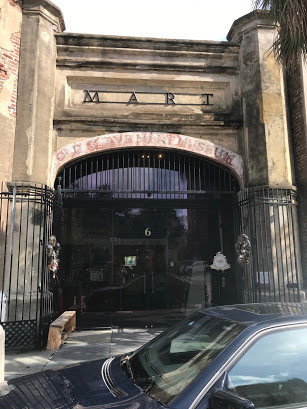
I stood before it. It's odd, in a way, with a plate glass facade. But the lettering above is not odd. Reading the words "MART" on the building made the hair on the back of my neck stand up. As well it should.
It's impossible to process, the fact of slavery. As soon as I thought of what went on inside that building 165 years ago, my mind collapsed.
I walked away, interior fingers pointing at me.
Hardly any walk is simple, is it?



